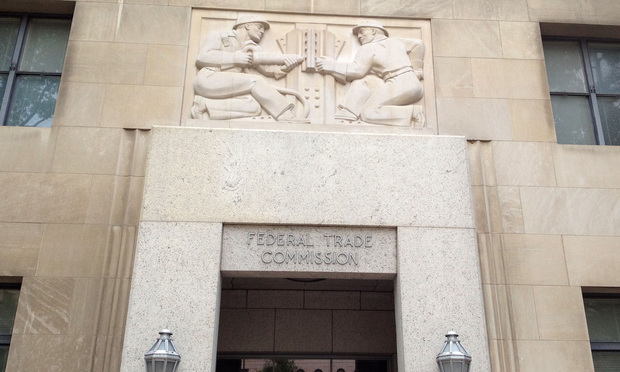Carl W Hittinger

February 11, 2016 | The Legal Intelligencer
The Antitrust Legacy of Former Third Circuit Judge Arlin AdamsFormer Judge Arlin Adams, who died Dec. 22, 2015, said in a 1999 interview, "The law is a majestic profession; and it will bring great happiness to somebody who takes it very seriously." While he remained a simple, unassuming man, he traveled in rarified circles with presidents, Supreme Court justices, governors and titans of the bar and industry. There was no doubt he took the law very seriously, claiming he was "kind of conservative," that "precedent was extremely important" and that he was "very reluctant to disturb legislative judgments." He admitted he "was open to new ideas" and a "progressive" if it made sense and could be intellectually defended.
By Carl W. Hittinger
8 minute read

December 07, 2015 | The Legal Intelligencer
FTC Brushes Aside AG, Regulators to Attack Local Hospital MergerThe Federal Trade Commission continued its relentless focus on combinations in the health care industry last month when it filed an administrative complaint challenging a merger of two West Virginia hospitals, In the Matter of Cabell Huntington Hospital.
By Carl W. Hittinger and Jeffry W. Duffy
8 minute read

December 07, 2015 | The Legal Intelligencer
FTC Brushes Aside AG, Regulators to Attack Local Hospital MergerThe Federal Trade Commission continued its relentless focus on combinations in the health care industry last month when it filed an administrative complaint challenging a merger of two West Virginia hospitals, In the Matter of Cabell Huntington Hospital.
By Carl W. Hittinger and Jeffry W. Duffy
8 minute read

November 02, 2015 | The Legal Intelligencer
FTC Weighs in on Upcoming Third Circuit 'Product-Hopping' Appeal"Product-hopping" refers to a practice employed by some brand-name pharmaceutical companies in which the company attempts to shift users from an older prescription drug that is going off-patent and will soon face generic competition to a newly introduced similar product from that company. Often, the new product will have a significant term of patent protection or other exclusivity remaining.
By Carl W. Hittinger and M. Mitchell Oates
10 minute read

November 01, 2015 | The Legal Intelligencer
FTC Weighs in on Upcoming Third Circuit 'Product-Hopping' Appeal"Product-hopping" refers to a practice employed by some brand-name pharmaceutical companies in which the company attempts to shift users from an older prescription drug that is going off-patent and will soon face generic competition to a newly introduced similar product from that company. Often, the new product will have a significant term of patent protection or other exclusivity remaining.
By Carl W. Hittinger and M. Mitchell Oates
10 minute read

October 05, 2015 | The Legal Intelligencer
FTC May Expand Use of Disgorgement Remedy to Closed MergersThe Federal Trade Commission will consider seeking disgorgement of "ill-gotten gains" even in cases involving closed mergers, said Deborah Feinstein, director of the FTC's Bureau of Competition, during a recent speech in New York regarding the agency's approach toward merger review. Given the FTC's more frequent use of the disgorgement remedies in recent years, this is a potentially important acknowledgement and one that the business community should watch closely.
By Carl W. Hittinger and M. Mitchell Oates
8 minute read

October 04, 2015 | The Legal Intelligencer
FTC May Expand Use of Disgorgement Remedy to Closed MergersThe Federal Trade Commission will consider seeking disgorgement of "ill-gotten gains" even in cases involving closed mergers, said Deborah Feinstein, director of the FTC's Bureau of Competition, during a recent speech in New York regarding the agency's approach toward merger review. Given the FTC's more frequent use of the disgorgement remedies in recent years, this is a potentially important acknowledgement and one that the business community should watch closely.
By Carl W. Hittinger and M. Mitchell Oates
8 minute read

August 21, 2015 | The Legal Intelligencer
Specific Guidance to Businesses Still Lacking in FTC PrinciplesIn 1914, Congress passed the FTC Act, creating the Federal Trade Commission. Section 5 of the FTC Act declared "unfair methods of competition in or affecting commerce" to be unlawful and gave the FTC enforcement power over such "unfair methods." Over 100 years later, that key language in Section 5 underlying the agency's competition-related powers had never been the subject of any formal FTC guidance. Clearly, "unfair methods of competition" include Sherman and Clayton Act violations, and some argue that Section 5 reaches beyond those statutes. But exactly what kind of additional conduct falls within the FTC's Section 5 powers has been a long-unsettled question.
By Carl W. Hittinger and M. Mitchell Oates
10 minute read

August 20, 2015 | The Legal Intelligencer
Specific Guidance to Businesses Still Lacking in FTC PrinciplesIn 1914, Congress passed the FTC Act, creating the Federal Trade Commission. Section 5 of the FTC Act declared "unfair methods of competition in or affecting commerce" to be unlawful and gave the FTC enforcement power over such "unfair methods." Over 100 years later, that key language in Section 5 underlying the agency's competition-related powers had never been the subject of any formal FTC guidance. Clearly, "unfair methods of competition" include Sherman and Clayton Act violations, and some argue that Section 5 reaches beyond those statutes. But exactly what kind of additional conduct falls within the FTC's Section 5 powers has been a long-unsettled question.
By Carl W. Hittinger and M. Mitchell Oates
10 minute read

August 14, 2015 | The Legal Intelligencer
FTC Issues 'Enforcement Principles' Governing Competition AuthorityOver 100 years since Congress passed the Federal Trade Commission Act, the Federal Trade Commission has finally issued formal guidance interpreting the central provision underlying the agency's antitrust enforcement authority. Under Section 5 of the FTC Act, the FTC can take action against "unfair methods of competition in or affecting commerce."
By Carl W. Hittinger and M. Mitchell Oates
4 minute read
Trending Stories
- 1Gibson Dunn Sued By Crypto Client After Lateral Hire Causes Conflict of Interest
- 2Trump's Solicitor General Expected to 'Flip' Prelogar's Positions at Supreme Court
- 3Pharmacy Lawyers See Promise in NY Regulator's Curbs on PBM Industry
- 4Outgoing USPTO Director Kathi Vidal: ‘We All Want the Country to Be in a Better Place’
- 5Supreme Court Will Review Constitutionality Of FCC's Universal Service Fund
More from ALM
- Legal Speak at General Counsel Conference East 2024: Match Group's Katie Dugan & Herrick's Carol Goodman 1 minute read
- Legal Speak at General Counsel Conference East 2024: Eric Wall, Executive VP, Syllo 1 minute read
- Legal Speak at General Counsel Conference East 2024: Virginia Griffith, Director of Business Development at OutsideGC 1 minute read



